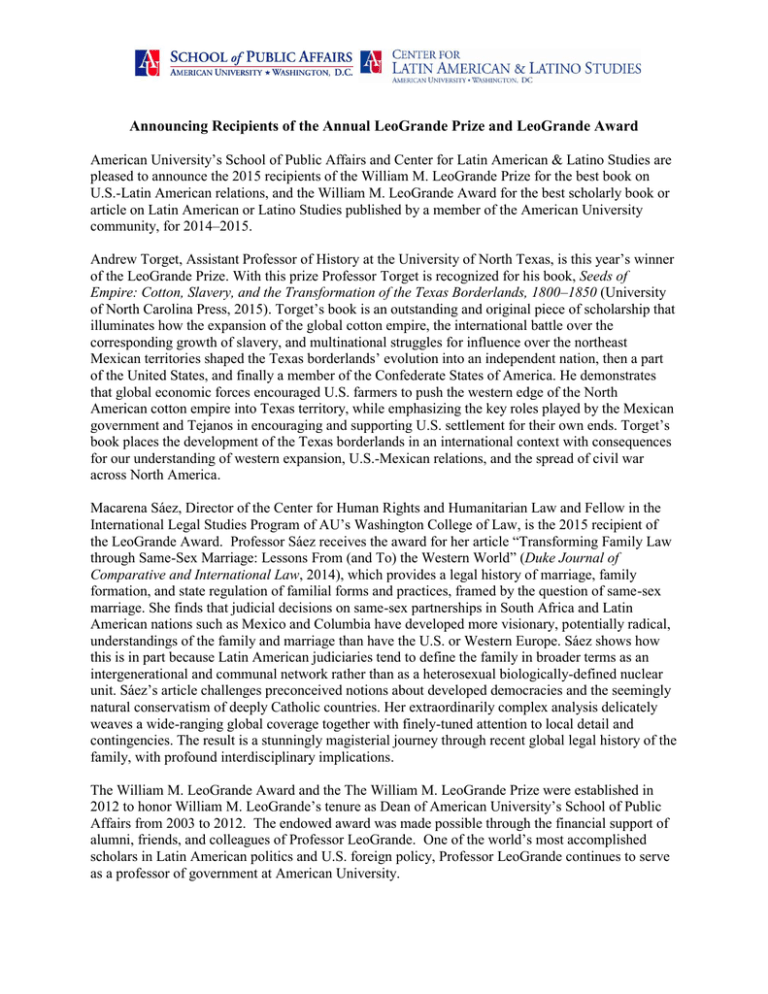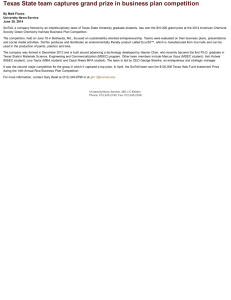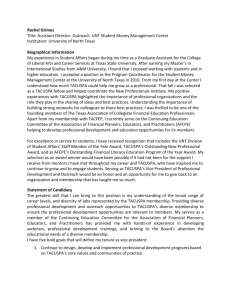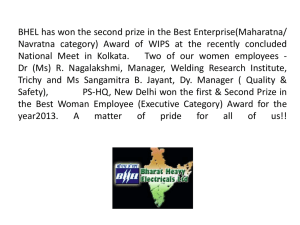Announcing Recipients of the Annual LeoGrande Prize and LeoGrande Award
advertisement

Announcing Recipients of the Annual LeoGrande Prize and LeoGrande Award American University’s School of Public Affairs and Center for Latin American & Latino Studies are pleased to announce the 2015 recipients of the William M. LeoGrande Prize for the best book on U.S.-Latin American relations, and the William M. LeoGrande Award for the best scholarly book or article on Latin American or Latino Studies published by a member of the American University community, for 2014–2015. Andrew Torget, Assistant Professor of History at the University of North Texas, is this year’s winner of the LeoGrande Prize. With this prize Professor Torget is recognized for his book, Seeds of Empire: Cotton, Slavery, and the Transformation of the Texas Borderlands, 1800–1850 (University of North Carolina Press, 2015). Torget’s book is an outstanding and original piece of scholarship that illuminates how the expansion of the global cotton empire, the international battle over the corresponding growth of slavery, and multinational struggles for influence over the northeast Mexican territories shaped the Texas borderlands’ evolution into an independent nation, then a part of the United States, and finally a member of the Confederate States of America. He demonstrates that global economic forces encouraged U.S. farmers to push the western edge of the North American cotton empire into Texas territory, while emphasizing the key roles played by the Mexican government and Tejanos in encouraging and supporting U.S. settlement for their own ends. Torget’s book places the development of the Texas borderlands in an international context with consequences for our understanding of western expansion, U.S.-Mexican relations, and the spread of civil war across North America. Macarena Sáez, Director of the Center for Human Rights and Humanitarian Law and Fellow in the International Legal Studies Program of AU’s Washington College of Law, is the 2015 recipient of the LeoGrande Award. Professor Sáez receives the award for her article “Transforming Family Law through Same-Sex Marriage: Lessons From (and To) the Western World” (Duke Journal of Comparative and International Law, 2014), which provides a legal history of marriage, family formation, and state regulation of familial forms and practices, framed by the question of same-sex marriage. She finds that judicial decisions on same-sex partnerships in South Africa and Latin American nations such as Mexico and Columbia have developed more visionary, potentially radical, understandings of the family and marriage than have the U.S. or Western Europe. Sáez shows how this is in part because Latin American judiciaries tend to define the family in broader terms as an intergenerational and communal network rather than as a heterosexual biologically-defined nuclear unit. Sáez’s article challenges preconceived notions about developed democracies and the seemingly natural conservatism of deeply Catholic countries. Her extraordinarily complex analysis delicately weaves a wide-ranging global coverage together with finely-tuned attention to local detail and contingencies. The result is a stunningly magisterial journey through recent global legal history of the family, with profound interdisciplinary implications. The William M. LeoGrande Award and the The William M. LeoGrande Prize were established in 2012 to honor William M. LeoGrande’s tenure as Dean of American University’s School of Public Affairs from 2003 to 2012. The endowed award was made possible through the financial support of alumni, friends, and colleagues of Professor LeoGrande. One of the world’s most accomplished scholars in Latin American politics and U.S. foreign policy, Professor LeoGrande continues to serve as a professor of government at American University.



